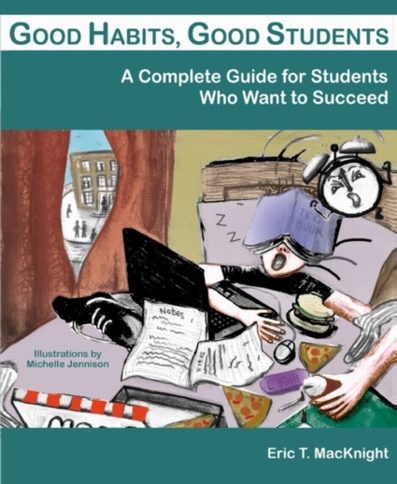When I was 14 I came home after school and ate enormous amounts of food. I remember eating, for example, an entire half-gallon bucket of vanilla ice cream (more than two litres). Despite this behaviour my tummy stayed slim and I never suffered any ill effects. By the time I was 30, however, the eating habits I acquired in my youth had become toxic, even lethal. My 14-year-old metabolic rate had slowed to a crawl, and all that junk food turned into fat. The habits that worked fine for me as a kid were disastrous for me as an adult.
Something similar happens in school. Does anyone really need to write down homework assignments before Grade 9 or 10? No, not usually. There’s not that much homework, and life is not filled with appointments, meetings, to-do lists, complicated work schedules, and an endless sequence of family obligations.
So as young people we are betrayed into developing bad habits that work fine for us in the short run, but cause us big headaches in the long run.
Do yourself a favour if you’re in Grades 6-9, and try to develop good habits now, not because you need them now, but because you will need them later.
Are you hungry because you’re growing so fast your pants are always too short? Fine: eat! But don’t eat loads of sugar and processed foods. Fill up with whole grains and fruits and vegetables. Drink water, not colas and other sugar-laced beverages.
Are you tempted to skip writing homework assignments in your school agenda or diary because you can remember them just fine—or can ask a classmate later tonight? Write them down anyway, every time, so that using a homework diary becomes as automatic and painless as brushing your teeth. Then when your life becomes really complicated (and it will, I promise!) you will already have one of the most important habits you’ll need to keep everything organized and under control.
Don’t let yourself develop bad habits when you’re young, just because you can get away with them painlessly, because believe me: the pain will come!

